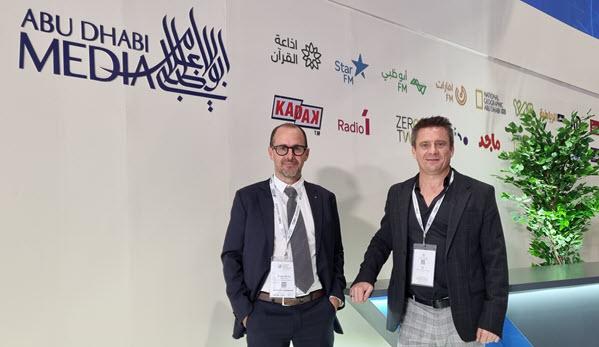
As the world was limbering up for the World Cup, my colleague Pascal Metral, a proud Swiss supporter and NAGRA’s VP of Anti-Piracy Services, was heading to the Global Media Congress in Dubai. As a guest of Abu Dhabi Media, he was there to share some thoughts about anti-piracy in the MENA region, its causes, and likely implications.
Piracy is popular, prevalent, and unfortunately, highly profitable. To break that down, Statistica in Q3,2021 estimated that in the U.S. alone, there had been over 5 billion visits to piracy sites offering film content. That’s just film content and doesn’t include gaming, music or any other content. To compound the situation, in the U.S., 9 million households subscribed to a pirate IPTV service in the same period. It’s therefore not surprising that annual pirate subscription revenues for IPTV in the U.S. topped $1b. Given this as a backdrop, there’s perhaps little wonder that NAGRA customers in the MENA region are starting to get concerned about the impact of piracy on their businesses.
But, why now?
Piracy in the MENA region is growing, fast. Regional streaming services including ADTV, StarzPlay and SwitchTV need content, and this has driven demand for original Arabic content which in turn has increased the amount of content produced in the region. The appetite for local content is matched by challenges seen elsewhere too. These are a fragmented content offering - and in particular sports which are distributed by major players such as Abu Dhabi Media, Etisalat and beIN Sports - overwhelming customer choice and an increased demand for safeguards. The sum of all these parts makes for a larger attack area for pirates who in turn create new consumer offers where full catalogues of content can be accessed in one place for an unbelievably low price.
As a result of these prevailing market conditions, key regional players such as Abu Dhabi Media put a lot of time, energy and focus into the fight against piracy. As a guest on Abu Dhabi Media’s stand at the Global Media Congress, Pascal Metral sought to explain how the local market was reacting to these new trends and how key partners such as NAGRA were tackling the problem.
NAGRA has worked with major rights owners across the MENA region for several years to limit the impact of piracy. With the World Cup being held in Doha, the team were also busy helping to shut down a number of anti-piracy operations ahead of the first ball being kicked. Effective anti-piracy strategies typically involve a combination of pro-active and re-active approaches.
Pro-Active Approaches to Piracy
For customers who have already launched streaming propositions, and particularly those with premium sport content, the challenges get magnified as richer pickings are spotted by pirates. Themes such as CDN content theft, credential sharing and app protection all require consideration as does protecting content from the outset with forensic watermarking (so the source of leaks can be detected later).
The NAGRA Active Streaming Protection framework is designed to address threats posed by streaming piracy. Featuring several different options and technologies, it aims, through a central security monitoring and analytics dashboard, to provide a clear, end-to-end view of the challenges facing the network. For today’s streaming providers, multi-DRM isn’t enough, and the distributed nature of OTT delivery means there are several aspects that need to be holistically considered to gain a true picture of the streaming piracy threat. The NAGRA approach seeks to secure video content and services in multiple dimensions, manage risks with a complete and flexible solution and, perhaps most important of all, simplify the integration so solutions can start working as quickly as possible.
Re-Active Approaches to Piracy
In the event of a leak being detected or piracy evidenced, deploying relevant countermeasures as quickly as possible is key. In live sports, time is of the essence and NAGRA solutions are optimized so shutdowns can be implemented in minutes to disrupt pirate operations and demonstrate to consumers that watching content illegally can mean you pay your money and then lose access without recourse.
For wider anti-piracy operations, a more strategic focus is required. This involves gathering evidence of content piracy, identifying the main players and then launching investigations that result in either criminal or civil enforcement proceedings.
NAGRA Anti-Piracy solutions support in-house anti-piracy teams and dynamically create a comprehensive overview of active piracy. Firstly, the NAGRA Threat Intelligence service shows which pirate services are actively distributing an operator’s content. Next, using the Ecosystem Explorer investigators enter the name of the pirate service and then plot other key datapoints which ultimately reveal who is behind the piracy ring. The final step is then to open an investigation that collects evidence to submit during legal proceedings. For organizations without anti-piracy teams, NAGRA can provide a full intelligence and investigation service and has also provided evidence to industry alliances such as Alianza in Brazil for major takedowns such as Operation 404.
To learn more about our anti-piracy solutions, see a demo or just continue the conversation, get in touch with our MENA Sales Director, Chrys Poulain and hear how NAGRA can help your organization tackle content piracy.

